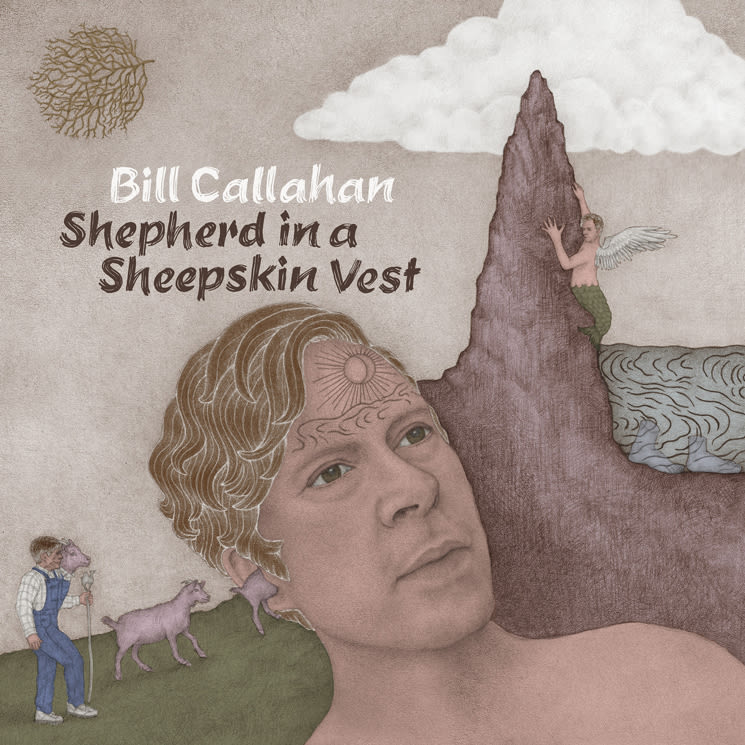To be a fan of Bill Callahan, of late, feels a lot like being on a glorious winning streak. Since retiring his Smog handle in 2007, Callahan has paced himself to release a record about every other year, and they're each rather stellar.
If he's been quiet since 2013's Dream River and its dub counterpart, 2014's Have Fun with God, it was for personal reasons and, on Shepherd in a Sheepskin Vest, a gorgeous double album, he essentially tells us all about them.
Already an underground music icon, Callahan has transformed himself into a husband and dad in recent years. He has also, sadly, become a child who lost his mother. At 52, he is in the middle part of his life and he is processing his present through his past and visions of the future.
"I don't believe in fate," he sings on "What Comes After Certainty," before adding, "I believe in destiny." Temporality is a force for us all, and Callahan bats it around with wit and particular candour, regaling us with anecdotal evidence about different kinds of dads, good and bad, but on a high level, more frank than sweet.
Full of love and appreciation for life, which makes more sense to him now than it maybe ever did, Callahan inimitably presents us with philosophical jokes and thoughtful observations on a record that is an adventurous stocktaking of his own life, set to tastefully arranged folk and an open spirit that welcomes us in.
(Drag City)If he's been quiet since 2013's Dream River and its dub counterpart, 2014's Have Fun with God, it was for personal reasons and, on Shepherd in a Sheepskin Vest, a gorgeous double album, he essentially tells us all about them.
Already an underground music icon, Callahan has transformed himself into a husband and dad in recent years. He has also, sadly, become a child who lost his mother. At 52, he is in the middle part of his life and he is processing his present through his past and visions of the future.
"I don't believe in fate," he sings on "What Comes After Certainty," before adding, "I believe in destiny." Temporality is a force for us all, and Callahan bats it around with wit and particular candour, regaling us with anecdotal evidence about different kinds of dads, good and bad, but on a high level, more frank than sweet.
Full of love and appreciation for life, which makes more sense to him now than it maybe ever did, Callahan inimitably presents us with philosophical jokes and thoughtful observations on a record that is an adventurous stocktaking of his own life, set to tastefully arranged folk and an open spirit that welcomes us in.
